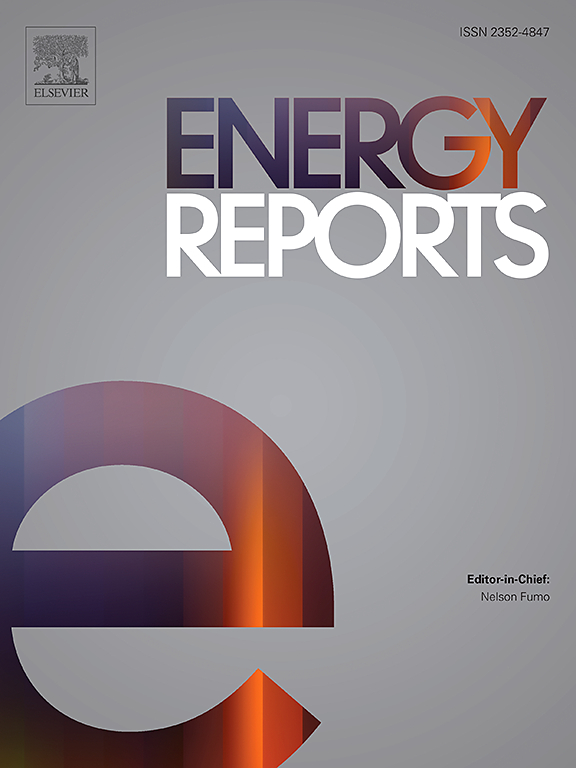Toward a sustainable future: Determinants of renewable energy utilisation in Canada
IF 4.7
3区 工程技术
Q2 ENERGY & FUELS
引用次数: 0
Abstract
This study investigates the nexus between carbon dioxide (CO₂) emissions, electricity consumption, foreign direct investment (FDI), gross domestic product (GDP), and renewable energy in Canada from 1990 to 2023, using an Autoregressive Distributed Lag (ARDL) approach. The research addresses critical environmental challenges posed by economic growth and energy utilization, primarily understanding how these factors influence CO₂ emissions over time. The results reveal that a 1 % increase in electricity consumption is associated with a 0.02 % rise in CO₂ emissions, underscoring the environmental impact of Canada’s energy-intensive economy. Additionally, FDI shows a negative correlation with emissions, indicating that a 1 % rise in FDI contributes to a 0.05 % decrease in CO₂ emissions. Conversely, renewable energy utilization demonstrates significant potential for emissions reduction; a 1 % increase in renewable energy leads to a 1.15 % decrease in CO₂ emissions, highlighting the efficacy of clean energy in mitigating environmental impacts. The findings reveal that CO₂ emissions significantly decrease renewable energy utilization, electricity consumption, foreign direct investment, and economic growth significantly increase renewable energy utilization. Furthermore, electricity consumption and GDP significantly drive CO₂ emissions, while renewable energy and FDI have mitigating effects. These results imply that while economic growth and energy usage are crucial for Canada's development, transitioning to renewable energy and strategically attracting FDI can reduce carbon emissions. The study offers policy recommendations to support Canada's climate goals by encouraging investments in renewable energy and promoting sustainable economic growth.
求助全文
约1分钟内获得全文
求助全文
来源期刊

Energy Reports
Energy-General Energy
CiteScore
8.20
自引率
13.50%
发文量
2608
审稿时长
38 days
期刊介绍:
Energy Reports is a new online multidisciplinary open access journal which focuses on publishing new research in the area of Energy with a rapid review and publication time. Energy Reports will be open to direct submissions and also to submissions from other Elsevier Energy journals, whose Editors have determined that Energy Reports would be a better fit.
 求助内容:
求助内容: 应助结果提醒方式:
应助结果提醒方式:


